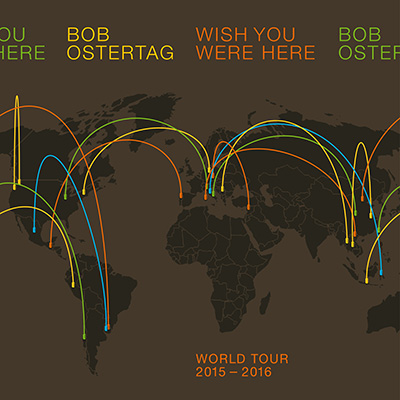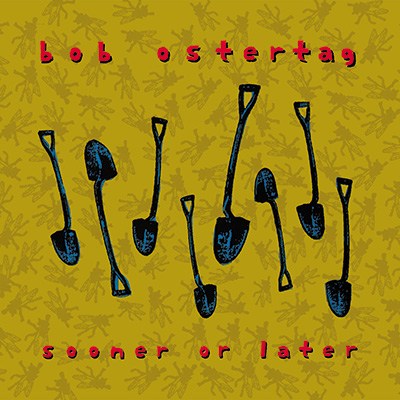Synthesizer Solo with Gamepad
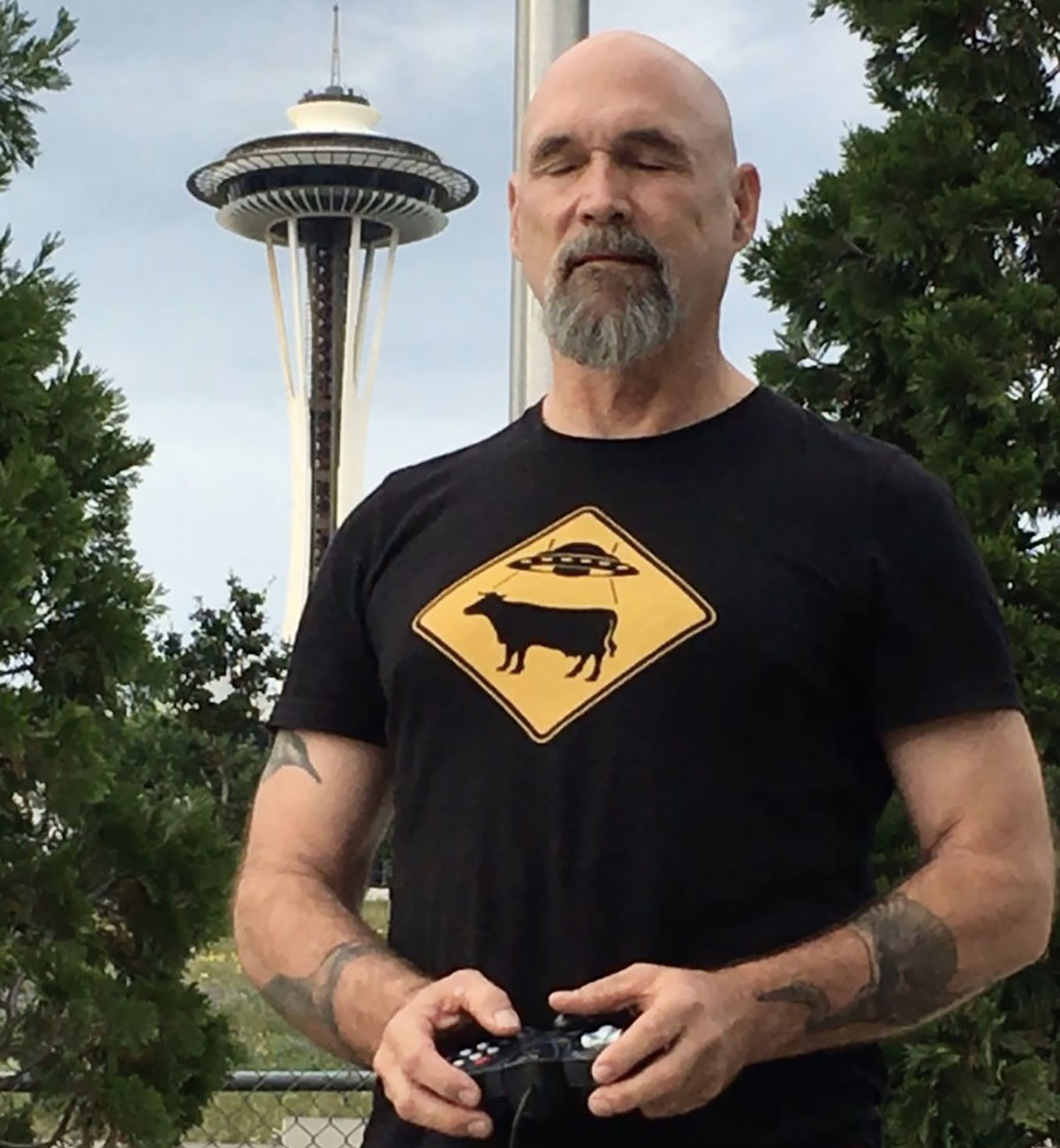
Concert at the Space Needle
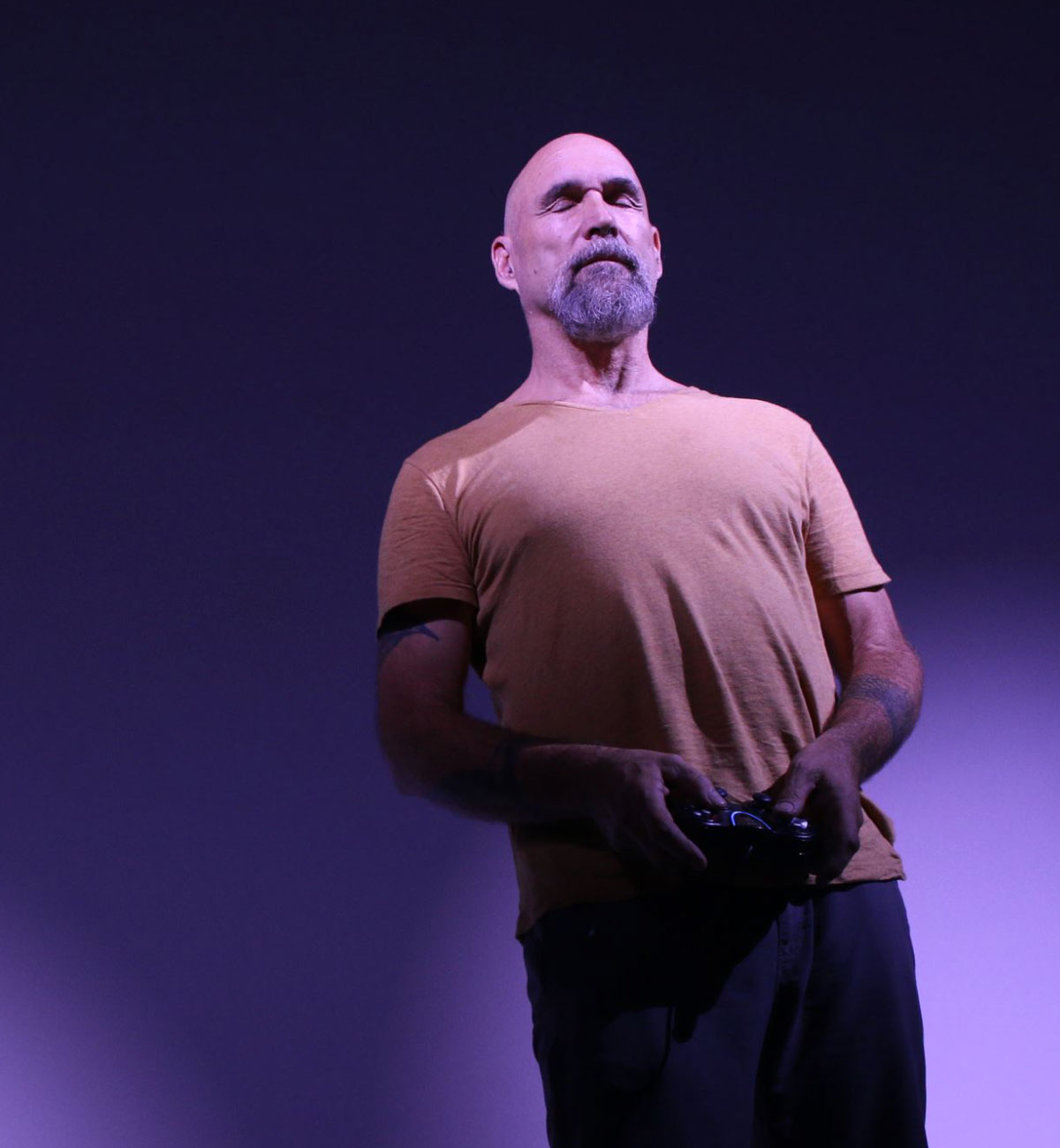
Manila
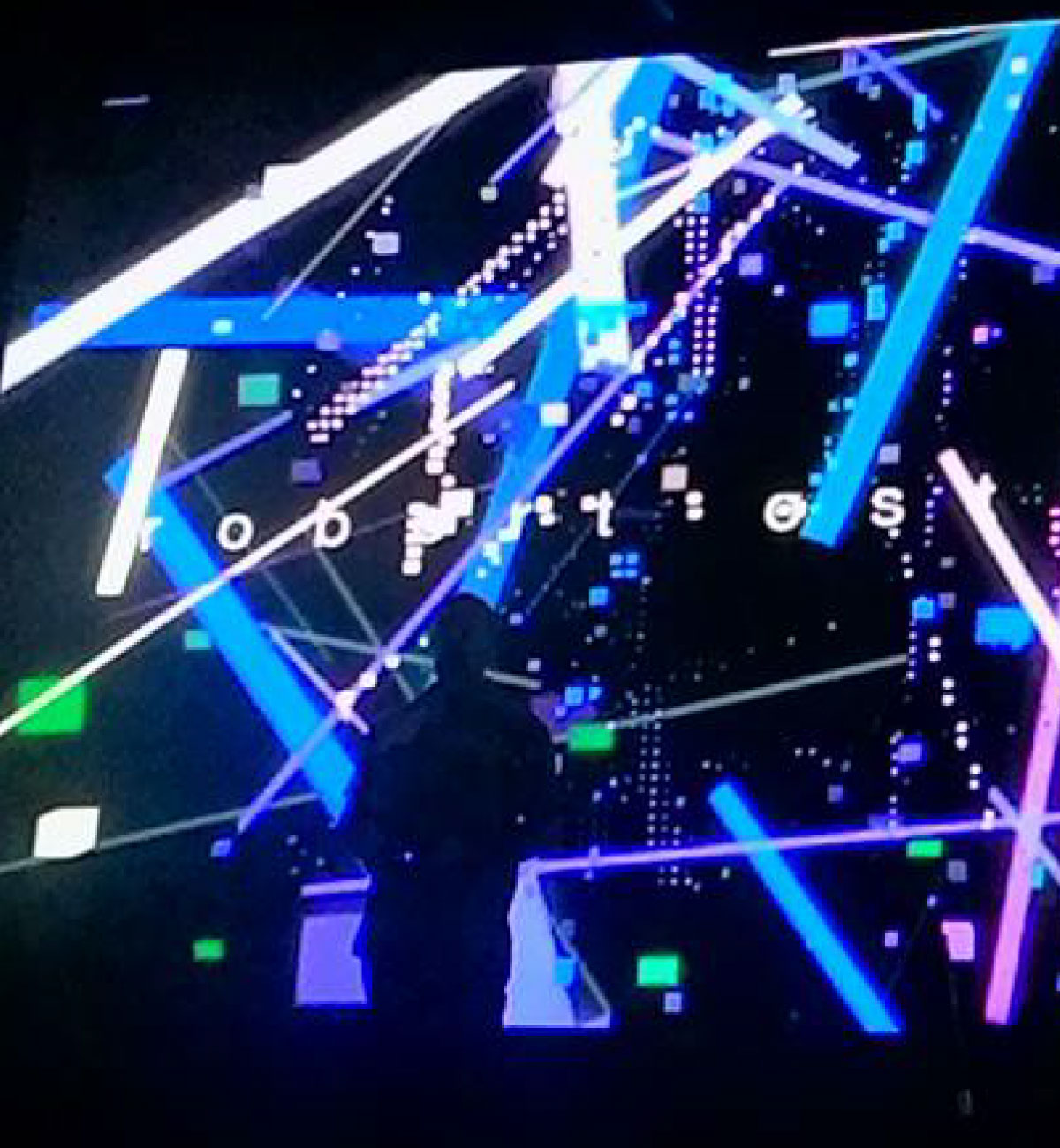
Bangkok
The stage is bare. Ostertag stands alone holding just a common gamepad typically used for computer games. There is no computer screen, no keyboard or DJ station, no other electronic gear, no table or chair. His eyes are closed. The music starts. The contrast between the calm he projects with his presence, and the earthquake of sound he produces, gives the performance a peculiar edge.
Ostertag performed and recorded extensively with Buchla and Serge modular synthesizers in the 1970s and 1980s. In 2011 he returned to modular synthesizers with an entire CD of work with a Buchla synth provided him by his close friend, synthesizer pioneer Don Buchla. His current work builds on these experiences, but now uses an interface of his own design which allows him to improvise with modular synthesis in a manner far more sophisticated and improvisational than was previously possible.
With all the interest in modular synthesis in recent years, these concerts are an opportunity for young people to hear the exciting new direction this accomplished master has taken the instrument.
Since nearly all young people have used gamepads to play computer games, this is an electronic music concert in which the physical “performance” is more comprehensible than is often the case with electronic instruments.
Like the Buchla synthesizers of the 1970s, Ostertag’s current instrument is created for quadraphonic sound. The concert also works well with a stereo system, but in quadraphonic the audience will experience a unique, almost tactile connection to the sound.
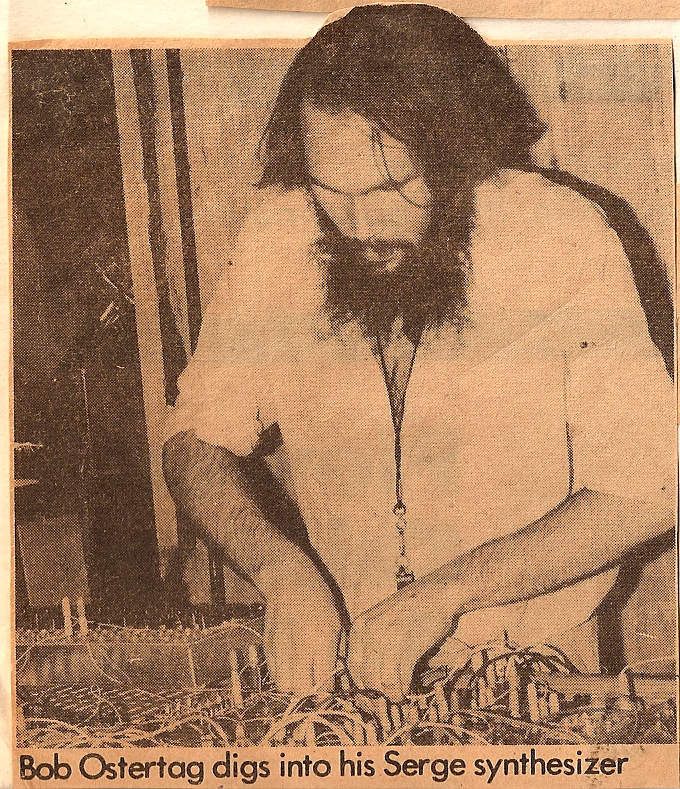
Playing the Serge at CBGBs, NYC, 1979
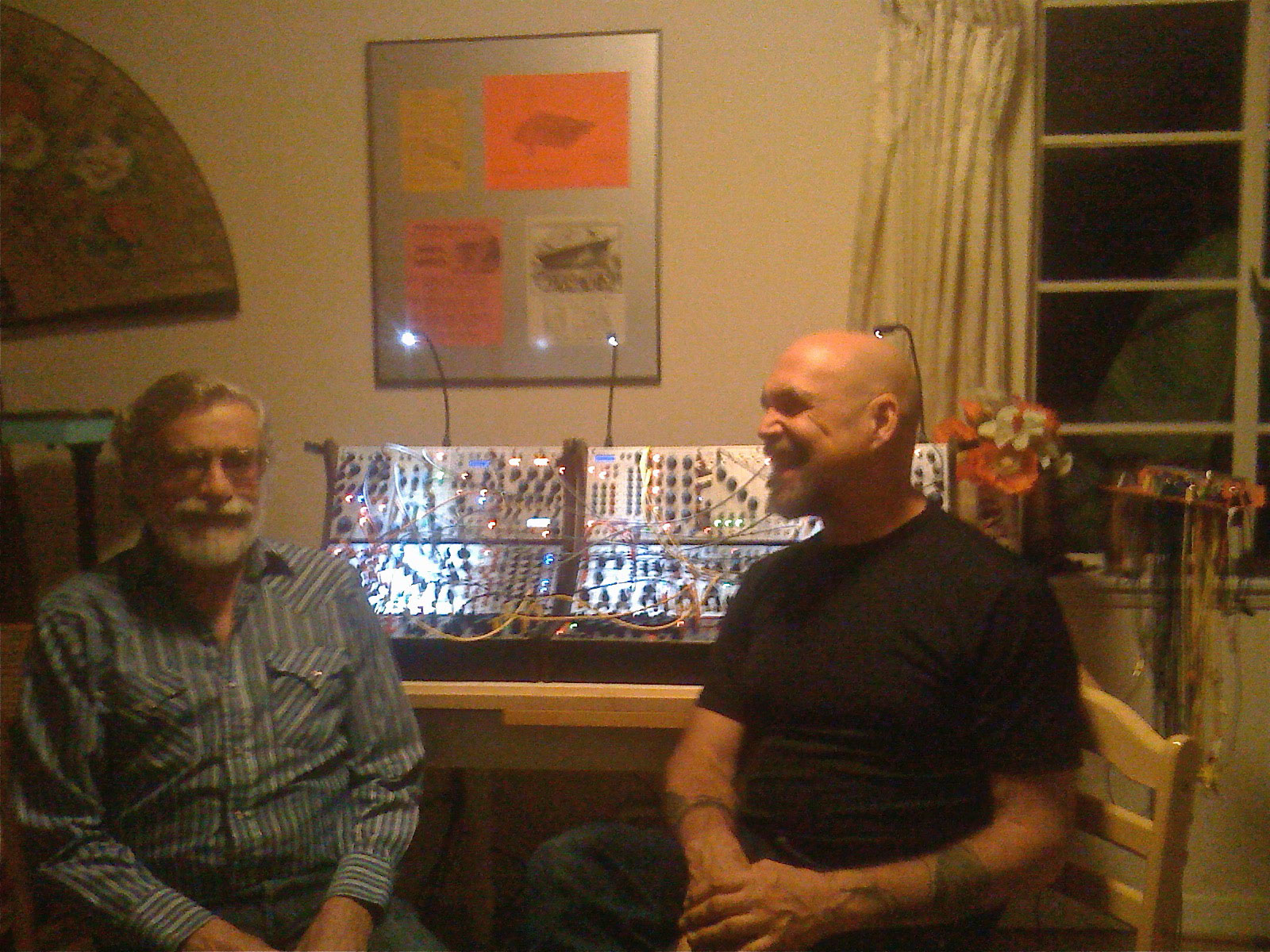
With inventor Don Buchla, 2016
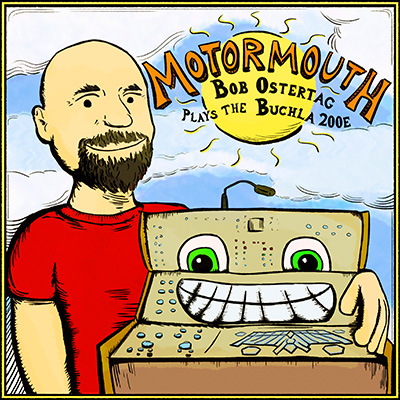
Buchla recordings, 2011
His current work builds on these experiences, but now uses an interface of his own design which allows him to improvise with modular synthesis in a manner far more sophisticated and improvisational than was previously possible.
His current work builds on these experiences, but now uses an interface of his own design which allows him to improvise with modular synthesis in a manner far more sophisticated and improvisational than was previously possible.
With all the interest in modular synthesis in recent years, these concerts will be an opportunity for young people to hear the exciting new direction this accomplished master has taken the instrument. Since nearly all young people have used gamepads to play computer games, this is an electronic music concert in which the physical “performance” is more comprehensible than is often the case with synthesizers. Like the Buchla synthesizers of the 1970s, Ostertag’s current instrument is created for quadraphonic sound (as were the Buchla synthesizers of the 1970s). The concert works well with a stereo system, but in quadraphonic the audience will experience a unique, almost tactile connection to the sound.
The New York Times:
Bob Ostertag’s improvisations on various non-keyboard synthesizers are about as far removed from the electronic music clichés of the past as can be imagined.
Die Zeit:
Sampling technology is used in a significant way for the first time. The music encircles reality, decomposes it into music and recomposes it until reality is no longer able to escape. Great music, that has something to do with life again.
The New York Times:
Bob Ostertag’s “All the Rage” turned the evening on its head with a devastating roar of gay anger. Of recent concert pieces having to do with AIDS, “All the Rage” seems by far the most powerful example. Mr. Ostertag’s stern, purifying gaze has swept away the sentimentality and melodrama that have compromised more famous compositions in the genre.
Music and Sound Output:
Perhaps the oddest music I have ever heard, it’s also more the sound of lives lived, and lives lost, than any music I have ever heard.
Cadence:
Truly powerful political art is rare, but this is some.
Torso:
Odd and genius. Like nothing before or after, I promise.
Messagger Veneto:
Bob Ostertag is the blaspheming priest of the art of noise. Genius underlies his performance.
Faster Than Sheep:
Part of you will have to be frightened, part of you hopefully will be enlightened, and part of you may be dumbfounded.
San Francisco Bay Guardian:
As beautiful as the pastoral/celestial meditations of Brian Eno or Kitaro would be — if either one of those musicians chewed glass.
Sooner or Later
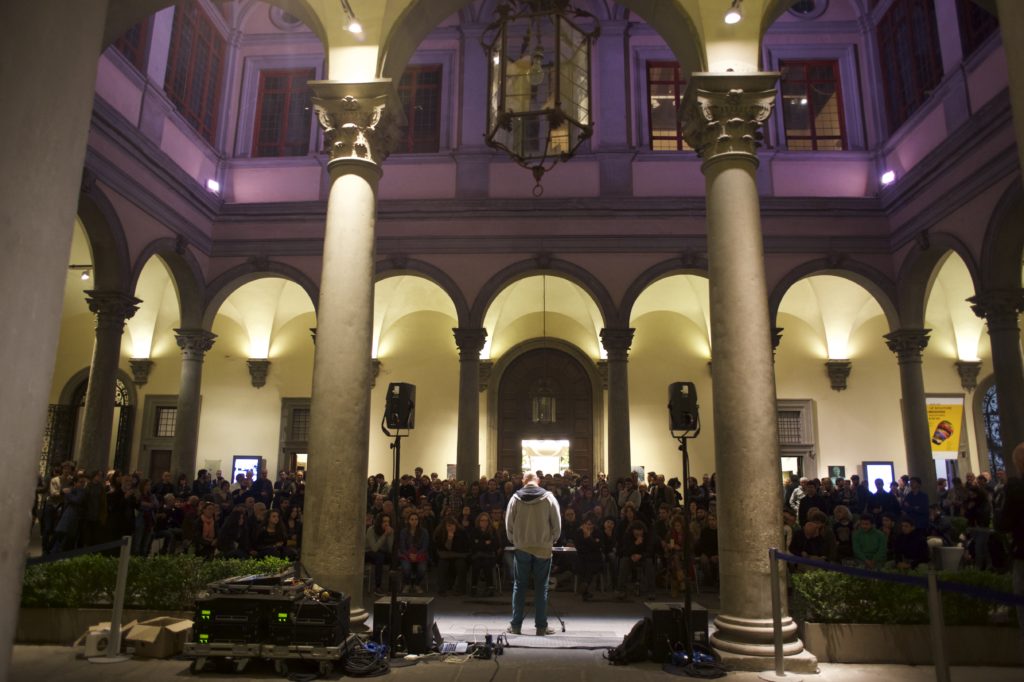
Performing Sooner or Later at the Palazzo Strozzi, Firenze Italy.
This is probably the best known of all Bob’s work. The entire piece is made from a recording of a young boy burying his father in El Salvador in the 1980s during the civil war there (a war in which Bob was involved on the side of the movement trying to overthrow the regime).
Bob performed the work in the late 1980s/early 90s, He revived it when invited to perform at a small music festival at a former guerrilla camp in the mountains of El Salvador not far from where the recording was made.
